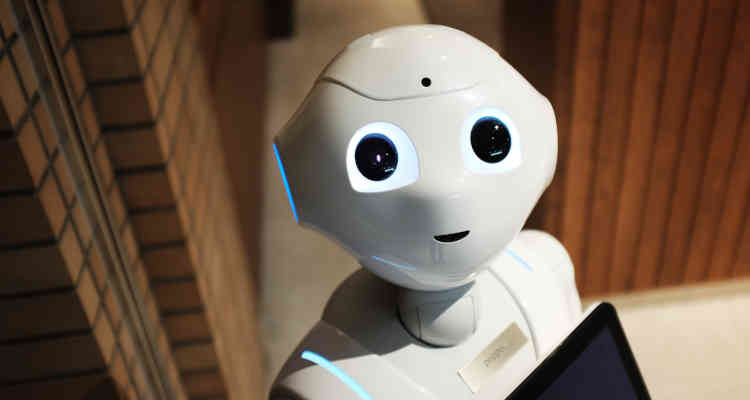What am I talking about? Why would christianity be any different in the 21st century than for the last two millennia?
It’s a faith based on events and a sacred text two millennia old so how can it change? We don’t need a different gospel now do we?
Or do we?
A dynamic faith
A quick look at history shows that christianity has always adapted and changed according to the culture around it, the needs of the christians at the time and a changing understanding of truth.
- The Bible has been read allegorically, devotionally, literally and historically at different times. Different readings lead to very different interpretations.
- Christians have always recognised that Jesus’ death was important, but different atonement theories have been favoured down the ages.
- Mostly the church has allowed its interpretation of scripture to change after scientific discoveries, such as the earth orbiting around the sun and evolution.
- Readings that allow anti-semitism, slavery and apartheid were changed (far too late) when it became widely accepted that they were wrong.
- Sadly, christians are adept at re-interpreting passages that are counter-cultural, often wrongly in my view, to justify patriotism & civil religion, wealth and greed, violence and war, and discrimination.
- There are many different styles of christian faith. Five major groupings (Orthodox, Catholic, Protestant, Pentecostal and home church), forty doctrinal groupings and many different denominations (though not 40,000 as often quoted). The growth of these groupings has been gradual over time.
So christianity isn’t a static belief system, and it has never been. It is quite reasonable to consider if changes are appropriate at this time.
But some things don’t change
There is of course a core that has pretty much remained solid. The Apostles Creed sums it up – God, Jesus (especially his death & resurrection), Holy Spirit, church and life in the age to come.
There is a small stream within modern christianity that rejects a literal interpretation of the supernatural parts of christian faith, but it remains a minority that doesn’t seem to ever gain much ground among ordinary christians.
Impetus for change
There are 4 reasons why many christians are reviewing and adjusting their beliefs at present.
Science & history
The depth and rigour of modern scientific and historical study has led to many old “truths” being questioned.
Was the world really created in 7 days?
Did God really command the Israelites to commit genocide, and did they actually do it?
We now have evidence to answer many questions like these with enough confidence to satisfy most modern christians. And enough reason to question many literal interpretations of the Bible, especially the Old Testament.
Compelling social movements
In many countries now, sadly not all, but including most where readers of this blog live, social movements are giving greater freedom and respect to groups previously discriminated against – women, LGBTQI, ethnic minorities, disabled, etc.
Many christians now have doubts about the relevance of the social ethics of the ancient and patriarchal world of the Bible. The principles of love for neighbour and enemy, care for the poor and disadvantaged, altruism, forgiveness and non-violence are more relevant than ever, but may need to be applied in different ways these days.
The blessing of education and the internet
It is a true cliche to say this is an information age. Modern education teaches youth to not accept authority without questioning and researching. The internet provides the means to gain knowledge not previously available.
The old form of christianity where supposed experts stood in pulpits and delivered information and inspiration to the masses is becoming less and less viable. Many christians want to move past the dogma and control that such “experts” provide, and think for themselves. They want to hear viewpoints that the spiritual gatekeepers don’t reveal, and maybe don’t even know.
Obvious church failings
Our culture is suspicious of the church, for all these reasons, and because of its bad track record – sexual abuse and cover-ups, great wealth and privilege, perceived hypocrisy, exclusivism, and opposition to social reform agendas. Many people feel personally abused or traumatised by the church.
So it’s no wonder many christians feel like Bob Dylan felt about his world so long ago: “Kick my legs to crash it off / Say okay, I have had enough / what else can you show me?”
Crash it off or fix it up?
So many christians face a choice – crash it off, give it up, turn away …. or repair, renovate and renew?
The process is often termed “deconstruction”, and it can be followed by disbelief, or by reconstruction.
I have been a christian believer for just on 60 years now, and those six decades have been a time of continual review and deconstruction/reconstruction (before I even knew those terms) – read about it in Seventy years in the making.
I’ve seen many people take each of those paths and I’m sympathetic with both responses. I’ve written quite a bit on this website about faith deconstruction.
Deconstruction doesn’t have to be destructive
But I’m convinced that Jesus is still the way, the truth and the life, while recognising that other belief systems and practices have truth and value too. I think we can follow Jesus while remaining open to new ideas in science and history and other social, ethical and religious viewpoints.
But I am also convinced that the christan faith needs to adapt, to go through yet another reformation.
Modern christans need to be able to build their faith on evidence and experience as well as revelation. They need to be able to be open to social movements like feminism, gay rights, black lives matter and climate action, assessing them on their merits rather than based on some slogan like cultural Marxism. They need a faith that encourages them to show love and acceptance to people and groups previously discriminated against by the church. And they need a church whose behaviour and beliefs they can accept and embrace with integrity.
There is a way and it can be found.
Faith for the future
And so I’ve started a section on this website on Faith for the Future, a companion or follow-up to Faith deconstruction, based on my experience of 6 decades of questioning and re-forming.
I want to play my part in the reformation and renewal I believe the Holy Spirit is bringing forward.
Photo: Alex Knight on Pexels.





